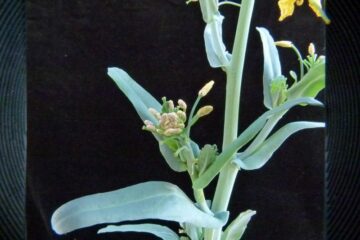Effects of climate change to further degrade fisheries resources

“Fisheries are already providing fewer fish and making less money than they could if we curbed overfishing,” says Rashid Sumaila, principal investigator of the Fisheries Economics Research Unit at UBC and lead author of the study. “We could be earning interest, but instead we're fishing away the capital. Climate change is likely to cause more losses unless we choose to act.”
Partly supported by the Pew Charitable Trusts, National Geographic, the World Bank and U.S. National Oceanic and Atmospheric Administration, the study is a broad view of the impact of climate change on fisheries and their profitability. It is published online today in the journal Nature Climate Change.
Over the last century the ocean has become warmer and more acidic. Other human-led factors, such as pollution and overfishing, have also been hard on marine species. With ocean warming, many species will move further towards the poles and into deeper water.
While fisheries in a few regions, such as the far north, may benefit from climate change, many other regions, particularly those in the tropics, can expect losses in revenues. Regional examples can help inform what could happen globally. For example, the reduction in landings of pelagic fisheries in Peru as a result of changes in sea surface temperature during the 1997-1998 El Niño event caused more than US$26 million of revenue loss.
“Changes in temperature and ocean chemistry directly affect the physiology, growth, reproduction and distribution of these organisms,” says William Cheung, a biologist at the UBC Fisheries Centre. “Fish in warmer waters will probably have a smaller body size, be smaller at first maturity, with higher mortality rates and be caught in different areas. These are important factors when we think of how climate change will impact fisheries.”
“This study provides an early glimpse of how climate change might impact the economics of fishing,” says Sam Herrick, a NOAA scientist and co-author. “We must continue to study how climate change, combined with other factors, will affect marine ecosystems and the productivity of fishery resources.”
Biologically, maintaining more abundant populations can help increase fish's capacity to adapt to environmental change. Curbing overfishing is crucial to making marine systems more robust and ready for changes that are already underway.
“This study highlights the potential negative impacts of climate change on the profitability of fisheries,” said Vicky Lam, UBC graduate student and co-author. “The next generation of scientists must put more effort on exploring ways to minimize the impacts of climate change.”
Fish stocks will also be more robust to climate change if the combined stresses from overfishing, habitat degradation, pollution runoff, land-use transformation, competing aquatic resource uses and other anthropogenic factors are minimized
“We have to remember that the effect of climate change on the marine environment will occur alongside the impacts on land,” says Daniel Pauly, a UBC fisheries biologist and co-author. “It will not be easy to divert resources from one sector to help another sector. This is why a strong governance system is needed – to temper the losses on the sectors that are worst hit.”
“Governments must be anticipatory, rather than reactive,” says Sumaila. “We all need to think more of the future while we act now.”
The University of British Columbia Fisheries Centre, in the College for Interdisciplinary Studies, undertakes research to restore fisheries, conserve aquatic life and rebuild ecosystems. It promotes multidisciplinary study of aquatic ecosystems and broad-based collaboration with maritime communities, government, NGOs and other partners. The UBC Fisheries Centre is recognized globally for its innovative and enterprising research, with its academics winning many accolades and awards. For more information, visit http://www.fisheries.ubc.ca.
The Pew Environment Group is the conservation arm of The Pew Charitable Trusts, a non-governmental organization headquartered in the United States that applies a rigorous, analytical approach to improving public policy, informing the public and stimulating civic life.
CONTACT
Rashid Sumaila
UBC Fisheries Centre
Tel: 604-822-0224
Email: r.sumaila@fisheries.ubc.ca
Brian Lin
UBC Public Affairs
Tel: 604-822-2234
Cell: 604-818-5685
E-mail: brian.lin@ubc.ca
Media Contact
More Information:
http://www.ubc.caAll latest news from the category: Ecology, The Environment and Conservation
This complex theme deals primarily with interactions between organisms and the environmental factors that impact them, but to a greater extent between individual inanimate environmental factors.
innovations-report offers informative reports and articles on topics such as climate protection, landscape conservation, ecological systems, wildlife and nature parks and ecosystem efficiency and balance.
Newest articles

Boron deficiency: oilseed rape reacts as with infection and pest infestation
Genetic mechanisms uncovered… Boron deficiency has a devastating effect on oilseed rape and related plants. However, little is known about the underlying genetic mechanisms. A study shows that the response…

Quantum Precision: A New Kind of Resistor
Researchers at the University of Würzburg have developed a method that can improve the performance of quantum resistance standards. It´s based on a quantum phenomenon called Quantum Anomalous Hall effect….

Security vulnerability in browser interface
… allows computer access via graphics card. Researchers at Graz University of Technology were successful with three different side-channel attacks on graphics cards via the WebGPU browser interface. The attacks…





















